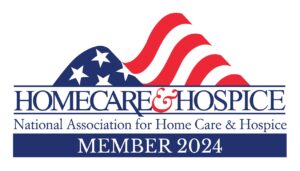Stay Organized and Safe With These Suggestions, Including Support From a Private Duty Caregiver
After a new diagnosis or a change in medications, it can be difficult to manage prescriptions and dosages to stay compliant with doctor’s orders. Older adults who take multiple medications are at an increased risk of falls and hospitalizations, and medications errors are the cause of as many as 22% of hospital readmissions.
Older adults who take multiple medications or whose medication dosages and schedules have recently changed, are at risk for:
- Drug interactions.
- Medication side effects.
- Forgetting to take medication.
- Accidentally taking the wrong dosage.
- Unknowns when starting a new medication.
- Taking expired medications.
Family caregivers can offer much-needed support by helping with medication management, so that their loved one stays as healthy as possible and enjoys the quality of life they deserve.
Stay Informed About Your Loved One’s Medications
As a family caregiver, the first step in helping your loved one keep track of medications and dosages is to gather as much information as possible about them. Listen carefully during your loved one’s doctor appointments and ask follow-up questions to understand what is being prescribed, the dosage, and how often it should be taken.
Make sure you understand how to take the medication as well. For example, certain medications for thyroid conditions must be taken on an empty stomach, first thing in the morning.
Maintain a Current Medication List
Keeping a list of the following information is an excellent way to help your loved one safely use medications to treat their condition:
- Names of medications, including the generic and brand names
- Dosage amounts
- Time of day the medication should be taken
- Common side effects for each medication
- Location and contact information for the pharmacy
This knowledge goes a long way in creating a plan for safe, managed, and effective medication use. It also sets the stage for developing an organized medication routine. Your list will also come in handy for sharing with new medical practices or hospitals who care for your loved one or new pharmacies who will need to check for potential drug interactions.
Create a Strong Routine and Get Help From a Private Duty Caregiver When Needed
Staying organized is particularly important as your loved one ages, as you may need to keep track of additional medications that are added along the way to treat their condition.
Consider taking these steps to create a system and routine for your loved one:
- Have all medications filled at the same pharmacy to reduce the risk of drug interactions.
- Create a checklist for when medications should be taken each day, as well as the dosage.
- Purchase a pill organizer and help your loved one to organize pills.
- Set alarms on a timer or on your loved one’s phone according to the times they take their medicines. You can purchase prescription bottle timers that alert when it’s time to take medications.
- If possible, connect taking medications with certain daily activities. For example, if certain pills are taken in the morning with food, make medications part of your loved one’s breakfast routine.
- Hiring a private duty caregiver can be an excellent source of support, too. A private duty home caregiver from a leading team for private duty care near you can provide medication reminders so your loved one can follow their medication routine when you’re not there.
Continue to Stay In the Know to Navigate Changes
As your loved one follows their medication routine as independently as possible, monitor their progress and watch for side effects. Keep an open line of communication with their doctor, nurse, and pharmacists, so you can report any changes and get help right away when necessary.
When introducing a new medication, follow the routine you’ve established to work this new medicine into the plan you’ve already started.
If certain medications are not needed any longer, it is best to remove them from the home to avoid confusion or accidentally taking an expired medicine. To dispose of medications, you can:
- Bring medicines to a National Take-Back Day location.
- Dispose of them at your pharmacy’s medication drop box, if one is available,
- Flush medications that are on the FDA’s “flush list.”
- Dispose of them in the trash, using this safe disposal guide.
Keep Your Loved One Safe With a Year-Round Medication Plan
Helping your loved one with their daily needs can be challenging, but implementing an organized, stable system helps them live as independently as possible for as long as possible.
However, not everyone can maintain their role as a family caregiver every hour of the day. To maintain your loved one’s routine and to provide the companionship, care, and compassion they deserve, you can hire a private duty home caregiver. Private duty care services provide needed care to help your loved one maintain their independence as much as possible, while providing respite for you.
Private duty caregivers also can support your loved one with other tasks of daily living, such as meal planning, cooking, personal care, transportation, and much more. Private duty care services are available in multi-hour shifts, ranging from two hours to 24/7 care.
Whether you need someone to fill in the gaps, or you need extended care to take a break or keep your work schedule, private duty care near you can help.
Find out more tips for helping your loved one, including more ways that a caregiver can support your family:






